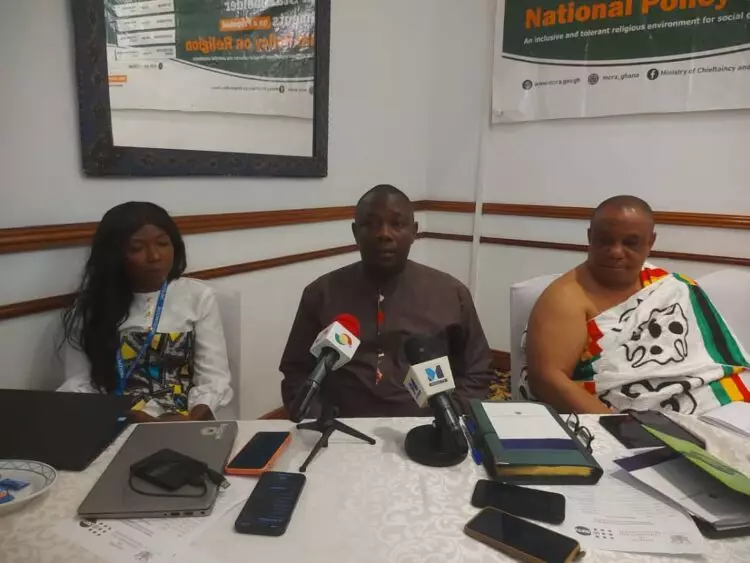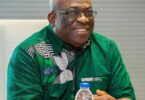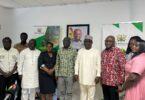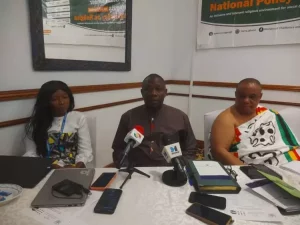
Story by: Ishmael Barfi
The United Nations Population Fund (UNFPA) has called for collaboration in addressing challenges facing young people, girls, and women in the country, especially in the religious space.
According to UNFPA, religious leaders have a critical role in ensuring the development and well-being of young people, girls and women, hence the need to engage them on some of the sensitive issues.
Some of these sensitives include the rights of women and children, and instances of witchcraft accusations leading to injuries and fatalities.
Acknowledging the relevance of religious leaders, the UNFPA Country Representative, Dr. Wilfred Ochan, in a speech read on his behalf by the Officer in charge of Programme Support for Gender and Human Rights, Abigail Edem Hunu explained that most people including young people, girls, and women all over the world look up to religious leaders for guidance, directions, or inspiration especially when they become vulnerable and are looking for solutions.
Adding that, most cases, Religious Leaders are believed to have the following and the ability to lead their followers to step into the unknown with ease.
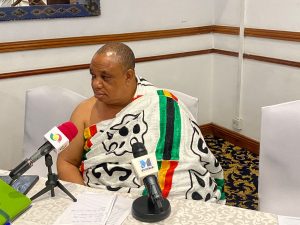
Miyemliniaba Nii Adjei Asua Oweeni II, La Agbawe Mantse
He made these statements during the last Chieftaincy and Religious Affairs’ extensive stakeholder consultations regarding the proposed National Policy on Religion.
The extensive stakeholder consultations organized by the Ministry of Chieftaincy and Religious Affairs and the United Nations Population Fund (UNFPA) were held in all the sixteen (16) regions with its final session simultaneously held on Monday, 27th November 2023 in the Greater Accra and Upper West Regions
He further indicated that these religious leaders mostly provide essential social support for many both adults and adolescents in their everyday lives.
“Faith-based organizations have unique relationships with their followers in the society and it is evident the world over”, he added
UNFPA partnering the Ministry of Chieftaincy and Religious Affairs he noted is in line with UNFPA mandate of empowering women and young girls to realize their dreams.
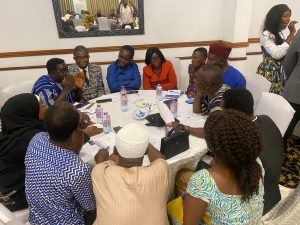
Stakeholders brainstorming during group sessions
Cultural and religious factors Dr. Wilfred Ochan noted plays significant roles in shaping attitudes and behaviours related to reproductive health, family planning, and gender issues.
“As such, many religious leaders and institutions play crucial roles in shaping community attitudes. UNFPA recognizes the importance of engaging with religious leaders to promote dialogue and understanding”, he reiterated.
The consultation meeting he noted is much desired for since in some cases, religious teachings may align with the principles of human rights, social justice, and the well- being of individuals and families.
On that note, UNFPA he said recognizes the importance of understanding and respecting religious and cultural diversity.
Therefore charged stakeholders to ensure a policy that would harness peace cohesion irrespective of one religion.
“Let us together think about the future of our young people and put in place policies that involves addressing harmful practices, such as female genital mutilation and child marriage, which are rooted in traditions.”.
Dr. Wilfred Ochan therefore pledged UNFPA commitment to work closely with institutions such as the Ministry of Chieftaincy and Religious Affairs which deals directly with the leaders of communities to promote partnerships and practices that respect human rights and safeguard the health and well-being of individuals.
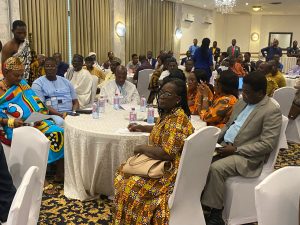
Cross Section of stakeholders at the Consultations meeting
“We recognize the unique roles of religious leaders in mobilising the population for health and development, and for this reason, we are collaborating with the Ministry of Chieftaincy and Religious Affairs to ensure that together, we deliver on our collective mandates, for the Good of Ghana”, he concluded.
Meanwhile, in a speech read on behalf of the Minister of Chieftaincy and Religious Affairs, Stephen Asamoah Boateng, recognised the influential role of political figures and stressed the importance of promoting unity and peaceful co-existence among diverse religious communities.
Highlighting the importance of the stakeholders consultation meeting, Mr. Asamoah Boateng urged stakeholders to contribute their views, concerns, suggestions, and recommendations to shape a policy to aligns with the aspirations and values of the people.
“We want to listen to your views, concerns, suggestions, and recommendations on how to shape a policy that reflects the aspirations and values of our people. This, we believe, will help us ensure that our religious environment is devoid of rancor, bickering, and acrimony. When this is achieved, we will coexist, and Ghana will win eventually,” the Minister said.
Touching on the numerous support, the Chieftaincy and Religious Affairs Minister thanked the United Nations Population Fund (UNFPA) Ghana Country Office, the National Development Planning Commission, and the Department for the Study of Religions at the University of Ghana, Legon.
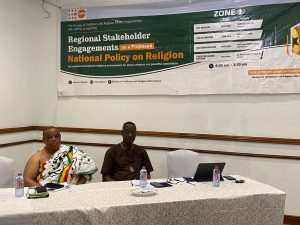
Let’s Intensify Social Protection Against Religious Stigmatisation, Discrimination—UNFPA
Speaking to the media, Dr. Harry L. K Agbanu, the lead consultant for the Chieftaincy and Religious Affairs Ministry had underscored the relevance of formulating a policy to guide religious practice in the country.
“We want to be able to live in an atmosphere of peace, tolerances, and peaceful coexistence, regardless of your religious belief. After all, we are Ghanaians first before our religion”, he reiterated.
To him, “religion should not divide us but rather should bind bring us together so that, we can live as brothers and sisters in a peaceful country that we want for ourselves”.
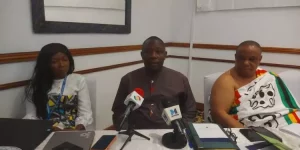
(right-left) Miyemliniaba Nii Adjei Asua Oweeni II, La Agbawe Mantse, Dr. Harry Agbana, and Abigail Edem Hunu, UNFPA Officer in Charge of Programme Support for Gender and Human Rights
Adding that, because of the emotive nature of religion, there will be a need for some regulations, some policy to guide how we behave as religious people.
Touching on the readiness of such policy, Dr. Harry L. K Agbanu who is also a lecturer at the Department for the study of religions, University of Ghana was of the view that Ghanaians wants peace during and after elections hence are ready for the policy.
“Ghanaians want peace. There’s nothing so important to Ghanaians than peace; so everyone is doing his or her best to make sure that this policy comes into fruition, so that we can guarantee that we’ll be living in an environment of peace without any religious rancor”, he anchored.
Ghanaians he noted have become politically matured that anyone who wants to play the religious card would be digging his or her own grave stressing that, religion is non-political.
“And so we urge our members, our politicians, not to go the way of trying to arouse religious feelings and passion just for the benefit of individual, political ambition”, he urged.
Some of the key issues raised during the consultations included concerns about religious noisemaking, intolerance, inter and intra-religious tensions, rights of women and children, and instances of witchcraft accusations leading to injuries and fatalities.
The National Policy on Religion, currently in draft form, aims to guide religious activities and address challenges arising from the coexistence of diverse faiths and beliefs in society.
It seeks to provide a framework for the protection and promotion of the rights and freedoms of all religious groups while preventing and resolving conflicts.
Source: www.thenewindependentonline.com


